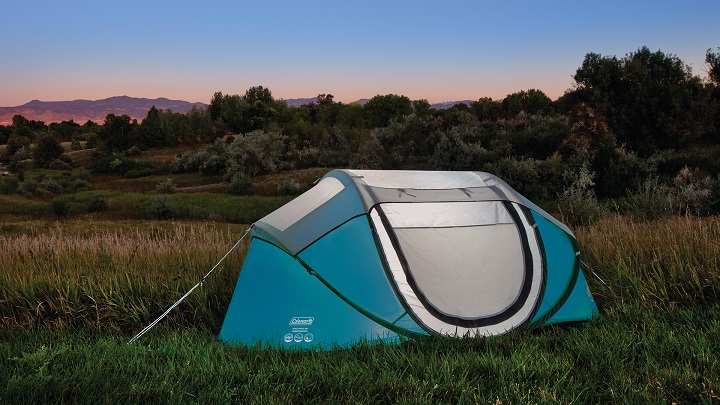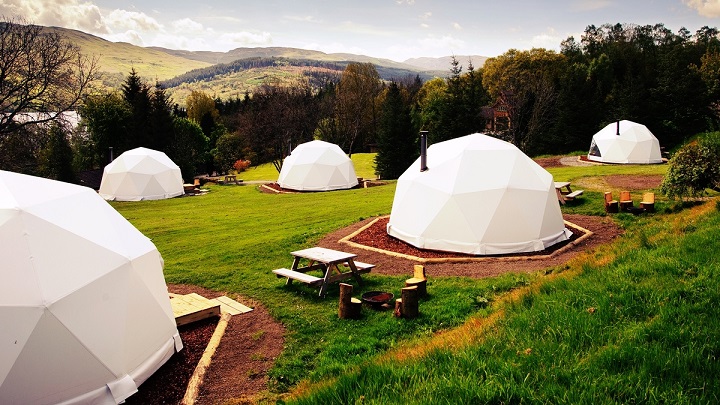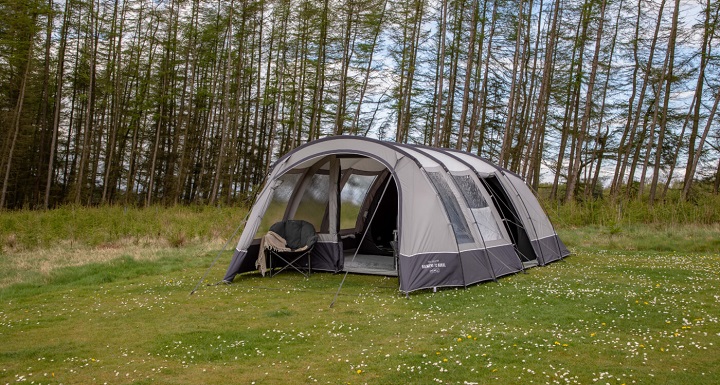A successful outdoor adventure requires good planning. Having the necessary supplies and equipment, such as the right camping gear and off-road car accessories if you’re going off the beaten trail, can make a whole lot of difference in your overall enjoyment and experience. One of the most important things you will need, though, is a tent.
If you are new to camping, trying to figure out what is a good tent for camping may feel overwhelming. The great news is that gone are the days of the stand A-frame canvas tents and their heavy wooden poles. You no longer need a 50-page instruction manual and a whole team of helpers to set up a tent. The tent industry has improved a lot since then. However, with all the convenience offered by modern tents comes a number of decisions that need to be made. Decisions that I may say, can make you opt for unsuitable tents.
In order to choose the right camping tent, it’s useful to know what the most common tent designs are on offer, with the pros and cons of each. This will help you make an informed decision, especially when shopping for camping tents online.
Pop-up Tents

This type of tent has exploded in popularity in the last years and for great reason. As its name suggests, a pop-up tent is designed to pop open and take shape with little-to-no construction, generally requiring only to be tied down. Often designed for two people, a pop-up tent is extremely easy to set up, making them the perfect choice for camper beginners or festival-goers.
Pop-up tents are the most commonly seen in music festival campsites. Lightweight and very easy to carry, these tents pack away into a circular bag. All you have to do is remove the tent from the bag, pull it open and voila – our instant domicile.
Pros:
• Simple installation – the easiest type of tent to set up, taking only a few seconds;
• Lightweight and compact design make it very easy to transport and store;
• Small footprint – can fit virtually anywhere;
• Relatively roomy in relation to compactness.
Cons:
• Its in-built convenience can add to the price;
• It can break in extremely high winds where the tent is fully exposed;
• Limited headroom due to such compact design;
• Not suitable for camping in extremely harsh weather conditions.
Dome Tents

A tent style suitable for a wide range of pursuits. When browsing the range of camping tents online, you’ll easily identify a dome tent by its curved pole structure, which has two or three poles that arch at the top in a semi-circle. Featuring a detachable groundsheet, a dome tent is relatively easy to put up. It works with an interlocking pole system that feeds into a simple webbing structure, holding the tent in place. While this tent style is not ideal in harsh weather situations, it can withstand a fair amount of rain and wind. Some dome tents feature porch sections, which are great for storing gear separate from the sleeping space.
Pros:
• Easy to set up and transport – generally require a few poles thread through;
• Good headroom due to the shape;
• Reasonably strong;
• Can be easily joined together – a great option for families;
• One of the most affordable and widely available tent styles;
• Suitable for different camping styles.
Cons:
• It can struggle in strong winds – the higher the dome, the more wind it will be exposed to;
• The curved zip doors commonly featured on dome tents can easily catch or break.
Tunnel Tents

This tent is a fantastic choice for camping with family or friends. Straightforward to put up, it offers plenty of space and headroom in comparison to the dome style.
Featuring a series of curved poles, these tents are awkward to carry for long, which means they are better suited to campsites or long stays. Tunnel tents should also be pitched facing into the wind to prevent them from collapsing. Besides this, if you’ll be travelling by car and can afford the extra space in the tent, a tunnel tent is a great choice. Don’t forget to bring your camping torch so you can find your stuff inside the tent.
Pros:
• Ideal for larger groups;
• Ample headroom;
• Tapered ends offer optimal protection in wind areas;
• Versatile and suited to most environments;
• Comfortable and spacious.
Cons:
• Installation takes some time;
• Larger footprint than most other tent types;
• Ventilation can be restricted due to its size.
Is a Waterproof Tent Worth It?

Are camping tents waterproof? This is a common question among camping beginners, the reason why I’ve decided to mention it. I want you to understand that not all tents are waterproof. In fact, most of them are only water-resistant. This means they just slow down the penetration of rainwater inside, but don’t prevent it from entering altogether. You may need additional coverage for your tent to become waterproof.